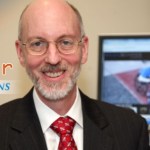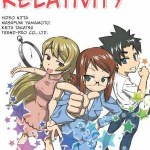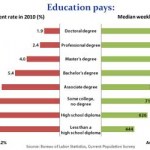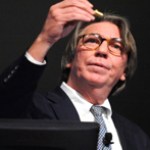Education
You've probably heard this story many times before: there's some kind of glass ceiling in the world of science and math that hinders women's ability to progress. The latest data confirms that something is going wrong.
The United States ranks 31st on the World Economic Forum's Gender Gap Index and is tied for 21st on Social Watch's Gender Equity Index. Still, the test scores of U.S. high school girls have reached parity with those of boys, and half the undergraduate math degrees awarded in this country go to women.
But after that, something goes off the rails. Just 27% of math Ph.D.s go to…
Skeptics love to hate CAM. And often, with good reason. Alternative medicines or medical treatments, as is often pointed out, become "mainstream" when the available science suggests that they work, so it is almost axiomatic that "alternative" means "unproven" and it is probably almost always true that the kinds of things that end up as "alternatives" come from sources with poor track records. For instance, one of the most common forms of alternative medicine used over the last several decades is Extra X where X is some substance we know the body uses, and that we know a deficiency of is…
VPAA Corner
Communication between academic administrators, faculty and students has never been easy. Should administrators embrace new media? Should they blog, tweet, post videos on YouTube? Or is it somehow undignified, too familiar?
Not only do I recommend it for Department Chairs, Deans, Provosts and University Presidents, I am beginning to view it as an imperative. To be effective educators, we must understand how our students learn, the sources of their information and how they communicate with each other. It is insufficient to try to keep up with the latest - if we really want to…
In my eagerness to pivot back to an area of my interest after having had a little fun with anti-vaccine cranks, I ignored a paper to which several of my readers referred me over the last few days. Many of them had first become aware of it when everybody's favorite smugly condescending anti-vaccine crank, Ginger Taylor, started pimping it on her blog. Before that, it apparently popped up on the only anti-vaccine site almost as loony as Age of Autism, namely SaneVax, and it wasn't long before this paper started making the rounds of the anti-vaccine crankosphere, showing up at Gaia Health, and…
I'm doing a short presentation tomorrow on blogging for researchers as part of a day-long communications workshop for faculty here at York. And since a few months back I created a reading list for a social media presentation for grad students, I thought I'd expand that list in this post and add some more specifically blogging-related resources.
Enjoy!
Our Blogs, Ourselves (Paul Krugman)
The Power of Blogs in Forming New Fields of International Study
Should you enter the academic blogosphere? A discussion on whether scholars should take the time to write a blog about their work
Social media…
Just under a year ago, I quoted and endorsed Stephen Post's argument that lack of civility isn't the problem we face in society, that incivility is a symptom, not an end unto itself.
Civility matters, and there are good reasons to urge people to be more civil in their interactions, and to model that behavior ourselves. It's no accident that many uncivil styles of discourse are also informal logical errors. And there's a reason that deliberative venues - like the Senate floor - impose a standard of decorum and civility. Uncivil discourse often replaces substantive exchanges…
The The Manga Guide to Relativity might come in especially handy these days, what with faster than light neutrinos, Republican candidates and other science-defying entities zooming around. And, it is one of those Japanese anime things, which makes it cool. This is a story set in Tagai Academy summer's school session, where the "plucky" Miss Uraga teaches the kids relativity.
When you have finished reading this book you will be able to calculate the effects of time dilation, explain the Twin Paradox, understand Einsteinium famous E=mc2 and get a job at CERN.
Hideo Nitta, is in the…
One of the many things I wish I had had time to blog about during the just-completed term was the big New York Times article on attrition in science majors. This generated enough commentary at the time that people are probably sick of it, but I haven't seen anything that exactly matches my take, so I'll belatedly throw this out there.
The big point of the article is that lots of students who enter college planning to major in Science, Technology, Engineering or Math (the "STEM" fields, in an awkward but now inescapable acronym) end up graduating with degrees in something else:
But, it turns…
by Kim Krisberg
It's too early to tell just how many families Elizabeth Frerking and her colleagues at the Saline County Health Department in Marshall, Mo., will have to turn away, but it's likely to be too many. As of Oct. 1 and due to cuts in federal immunization funding, Frerking can only administer vaccines to children with no insurance at all or those with Medicaid coverage. However, it wasn't always like that.
"Previously, any family could come here and get immunizations -- we didn't turn anybody away," Frerking, the department's vaccine coordinator, told me. "Now, we get to be the ones…
For U.S. workers, the risk of dying on the job is highest if you are employed in agricultural, fishing or hunting. These jobs are not just a little riskier than the average job, they are nearly 8 times more life-threatening. The fatality rate for all private sector workers is 3.5 per 100,000 workers; in agriculture, fishing and hunting, the rate is 26.8 deaths per 100,000 workers. Combine these statistics with age-specific fatality rates and it was time for the US Department of Labor (DOL) to review the adequacy of its safety regulations for children working in farming jobs. The rules…
Marie-Claire Shanahan teaches science education at the University of Alberta, and blogs about her own research and about the state of science education (and science education training:Â science education education if you will). Her latest post summarizes her findings from reviewing science teaching guides going back over a century:
Educators, critics, and scientists often argue for improving science education by teaching the processes of science, emphasizing critical thinking, and actively engaging students in doing science. Almost always, this is argued to be a great improvement over…
I hate to see a great university system get thumped upside the head by chowder-brained legislators, but that's what's going on in New York. The chancellor of CUNY is pushing for a major revamp of the curriculum, system-wide. This ignores the unique culture at each institution and tries to turn them into cookie-cutter degree factories, and ends up targeting the lowest common denominator.
City University of New York's Chancellor Matthew Goldstein is about to turn the prestigious system of senior and community colleges into a glorified high school. And few people seem to even want to try to stop…
Before heading off to the Charleston Conference last week, I blogged about the big announcement of Pierre Lassonde's big $25 million donation to York to found the Lassonde School of Engineering.
I attended the announcement and livetweeted it quite extensively: here, here, here, here, here, here, here, here, here, here, here, here, here, here, here, here, here.
I also created a Storify story of a fair bit of the quite extensive twitter traffic of the annoucement and that is here. I've embedded the Story at the end of this post. It's mostly tweeting form the day of the announcement but I have…
Another list of books for your reading and collection development pleasure.
Abelard to Apple: The Fate of American Colleges and Universities by Richard A. DeMillo
When academics get together to talk about the future, they talk mainly to each other, but the American system of higher education has many more stakeholders than that. Over the course of months, the intended audience for what was now clearly becoming a book manuscript shifted noticeably from my academic colleagues to a more general readership--parents, students, taxpayers, elected officials, employers, decision makers at all levels…
By Dr. Gerry Harp, Senior Astrophysicist, Center for SETI Research, SETI Institute, and Gail Jacobs
Trained as a quantum mechanic, Dr. Gerry Harp was deeply interested in possibilities for using the multiple telescopes of the Allen Telescope Array to generate steerable "beams" on the sky -- beams that could be far smaller than any single antenna could produce. Such beams don't emit anything, but work in reverse by capturing only energy that comes from the sky in a certain direction. Gerry joined the SETI Institute in 2000, practically at the telescope's inception and uses the telescope for…
I've been harshly critical of the entire concept of "integrative medicine" (IM), which has over the last few years nearly supplanted the former term used for non-science-based medicine or medicine based on prescientific ideas represented as though it were scientific medicine, "complementary and alternative medicine" (CAM). Indeed, just last month I pointed out how IM is far more about marketing than it is about science or medicine, and over the last few years I've been particularly harsh on the concept of "integrative oncology," which is actually being promoted as a legitimate "subspecialty"…
Even as a child Terence Boylan was a dreamer with big ideas. Collaborating in 1957 with his friend, nine-year old Terence made plans to build a rocket that could carry a mouse into the sky and bring it back safely. But Terence did not have the money to buy the aluminum they needed so he asked his father (a physician and medical researcher at the University of Buffalo), where he got his research money. Dr. Boylan told him the National Institutes of Health (NIH), to whom the boy then wrote to ask for $10 to build the rocket. The request reached the chief of NIH Grants and although the NIH…
It has been something of a struggle over the years for the people of the Minnesota Planetarium Society. They've been trying to get a planetarium in Minneapolis for some time now, but for a number of reasons (not their fault) this has proved too difficult. Now there is good news. The Bell Museum, which is part of the University of Minnesota, will "absorb" the planetarium project, and eventually, there may very well be a dome that will replicate the night sky in Minnesota. I spoke with Nathan Laible, the Board Chair of the widely respected Minnesota Planetarium Society about the Planetarium…
Shorter David Klinghoffer: Strange Bedfellows at the National Center for Science Education:
Has NCSE stopped beating its wife?
He's writing in reply to my post a couple days ago. I had criticized him for comparing 9/11 "truthers" to scientists who advocate for evolution, when it's easier to find a prominent anti-evolutionist who thinks 9/11 was an inside job.
Anyway, Klinghoffer spent his 9/11 decennial writing about how it's totally the other way because he found this one guy who totally proves his point. James Fetzer, a professor emeritus at the University of Minnesota, Duluth, is a…
One aspect of "complementary and alternative medicine" (CAM) is the resurgence of practice of what has frequently been called "traditional Chinese medicine" (TCM). I've pointed out before that TCM is a prescientific system of medicine based largely on superstition and vitalism. Indeed, where ancient Greek and European medical systems believed that disease is due to imbalances in the four humors, TCM postulates disease to be due to imbalances in the five elements: Water, wood, fire, earth, and metal. These elements are thought to be related by cycles known as the Shen or Nourishing Cycle and…



